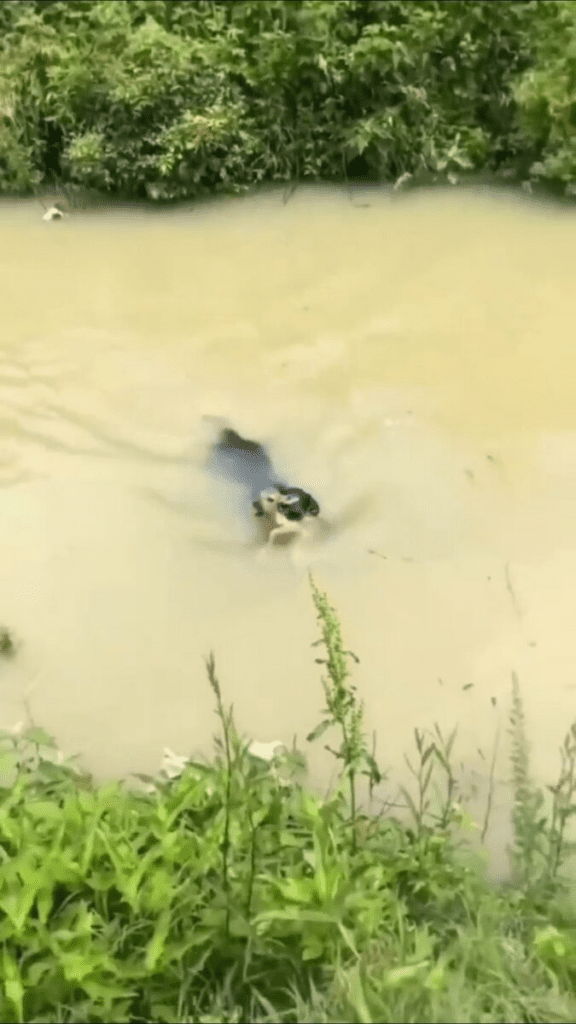The inextricable connection between the sea, climate & biodiversity is understandable. The ocean is one of Earth’s most significant climate regulators – absorbing nearly a third of emitted carbon dioxide & nearly 90% of excess heat. In short the planet’s health depends on a healthy ocean & ensuring a healthy ocean requires cooperation & coordination well beyond individual borders.
In this connection Ecuador, Costa Rica, Colombia and Panama signed a declaration during the COP26 in 2021, recognising their interconnected marine ecosystem. As a result the Galapagos Marine Reserve, created in 1998 by Equador, has been expanded with the creation of the Hermandad Marine Reserve. Covering an additional 60,000 square Kilometers(23,000 square miles) in the Pacific Ocean near the Galapagos, in addition to the existing 138,000 sq Kms(53,2821 sq miles).
The new reserve will ensure a safe pathway for the many amazing creatures to & from Costa Rica’s Cocos Island. Ecuador is a major player in the South American fishing industry around the Pacific. Now booming fish populations have spilled over in the adjacent areas and spectacular marine life wins over commercial tuna, making way for better research and ethical tourism.
A volcano erupted on an island in the Galapagos recently but the critically endangered pink Iguana species are safe, according to the Galapagos National Park authorities. Charles Darwin, the famous evolutionist, has specially noted the Galapagos Giant Tortoises & Pink Iguanas as an example for his theory of evolution. These South American Nations have set an ideal of international cooperation & a coordination for safeguarding the endangered flora & fauna from extinction.

Ecuador Expands Galapagos Marine Life Protection Reserve By 45%
Latest from Nature
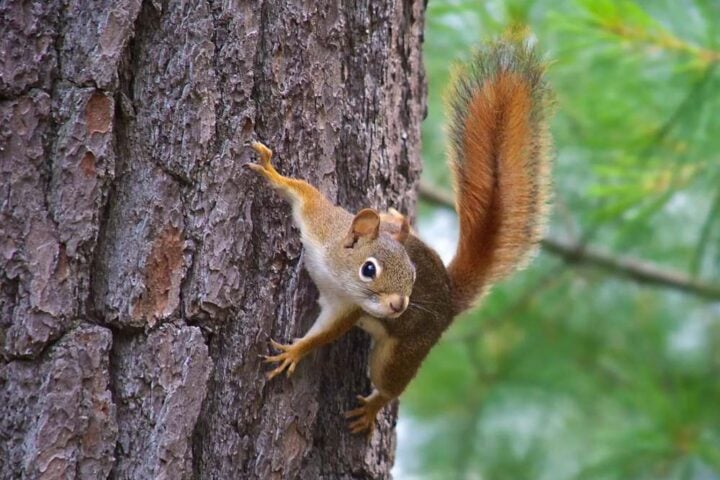
Federal Judge Sets 2027 Deadline for Mount Graham Red Squirrel Protection After Population Rebounds to 233
A federal judge has set firm deadlines for the U.S. Fish and Wildlife Service to address the protection of one of America’s most endangered mammals, the Mount Graham red squirrel, after years
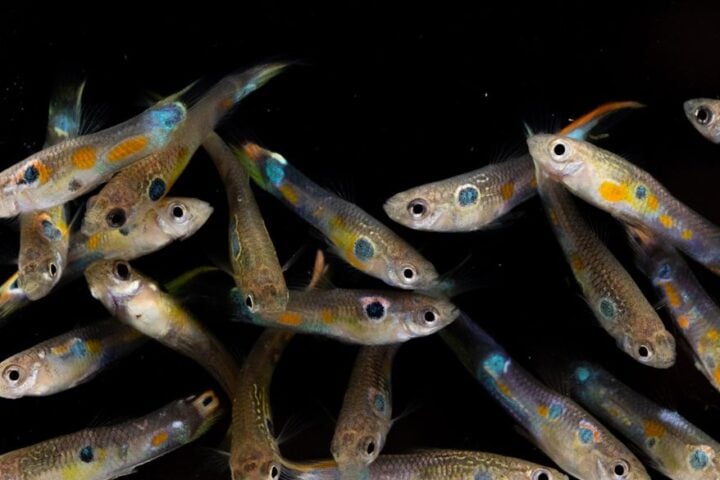
Male Guppies With Orange Spots 2X More Sexually Active Than Dull Males, UBC Study Finds
Scientists have solved a long-standing evolutionary puzzle about why male guppies sport such flashy orange colors despite the risk of attracting predators. The brighter the orange on a male guppy, the more
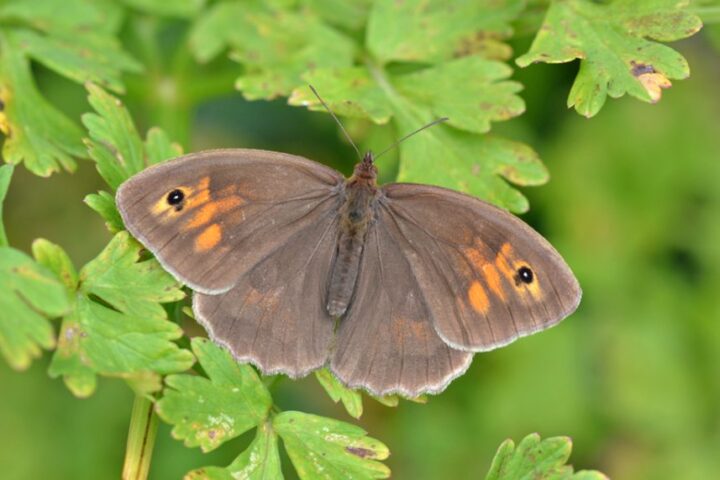
Farm Hedgerows Significantly Boost UK Butterfly Numbers as 2024 Marks Worst Decline Ever, Oxford Study Shows
Trees and hedgerows significantly increase butterfly numbers in UK farmlands, according to new research from Oxford University. This finding comes when butterfly populations desperately need help – 2024 was one of the
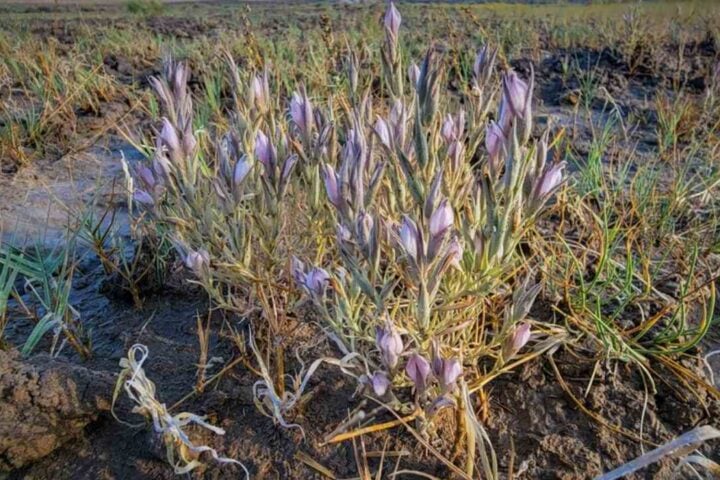
Lawsuit Filed to Protect Rare Desert Wildflower as 9-Month Federal Deadline Missed in Nevada Water Crisis
A rare desert wildflower that depends on groundwater for survival is at the center of a new environmental lawsuit. The Center for Biological Diversity sued the U.S. Fish and Wildlife Service on
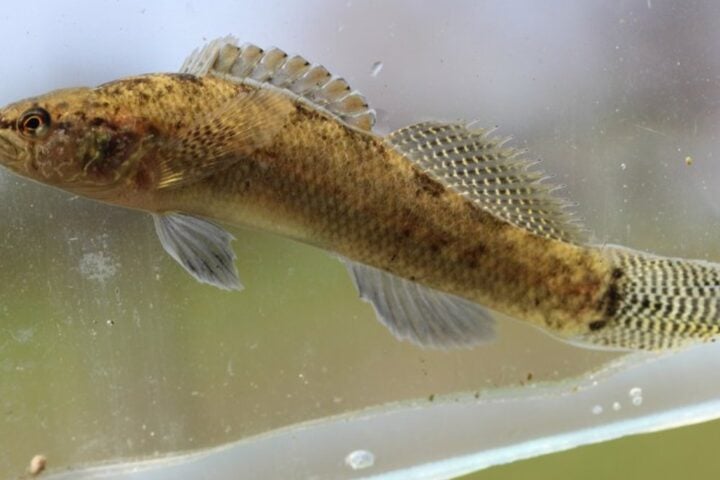
Tennessee’s Barrens Darter Fish Faces Extinction With Only 5 Populations Left in 6 Miles of Streams
After decades of advocacy and legal battles, the U.S. Fish and Wildlife Service (USFWS) has proposed listing the Barrens darter as endangered under the Endangered Species Act. This small, bottom-dwelling fish found
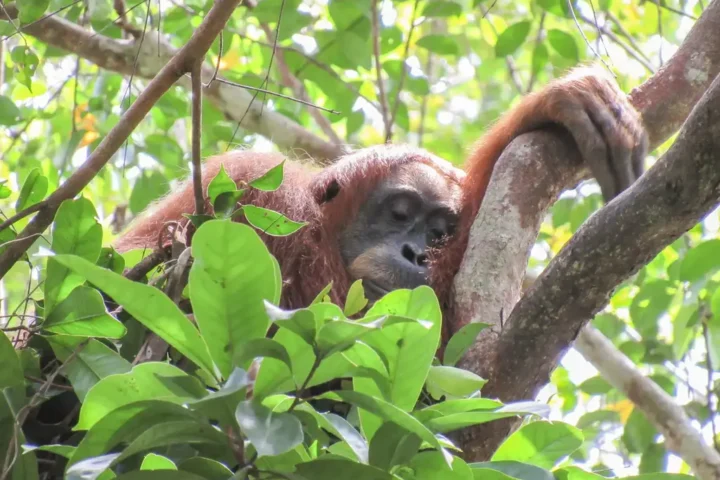
Wild Orangutans Take Power Naps After Poor Sleep, 14-Year Study Reveals Surprising Human Parallels
New research reveals that orangutans, one of our closest living relatives, deal with sleep disruption in a surprisingly human way – they take naps. Scientists from the Max Planck Institute of Animal

Endangered Secretary Bird Chick Thrives at Longleat as Wild Population Falls Below 10,000
An endangered secretary bird chick is thriving at Longleat Safari Park after being hand-reared by dedicated keepers. The chick, now five weeks old, has become a vital addition to global conservation efforts

Yorkshire Wildlife Park Launches 2000-Mile Rescue Mission for Ukrainian Lions While Celebrating First Monkey Birth
Yorkshire Wildlife Park is launching a rescue mission to save three young lions from war-torn Ukraine while also celebrating the birth of their first Titi monkey in the Amazonas walkthrough reserve. The
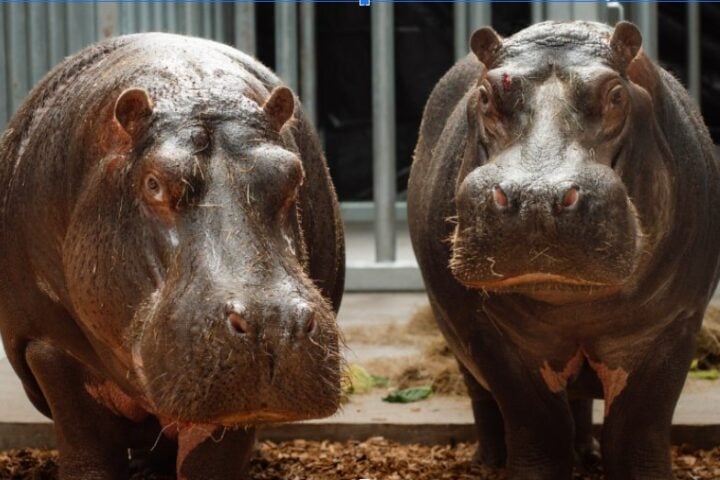
Longleat Safari Park Welcomes Four Hippos to New £2M Facility for Conservation Breeding
Longleat Safari Park has welcomed four new hippos as part of a crucial conservation breeding program for this vulnerable species. The arrival marks a significant milestone after the deaths of beloved hippos
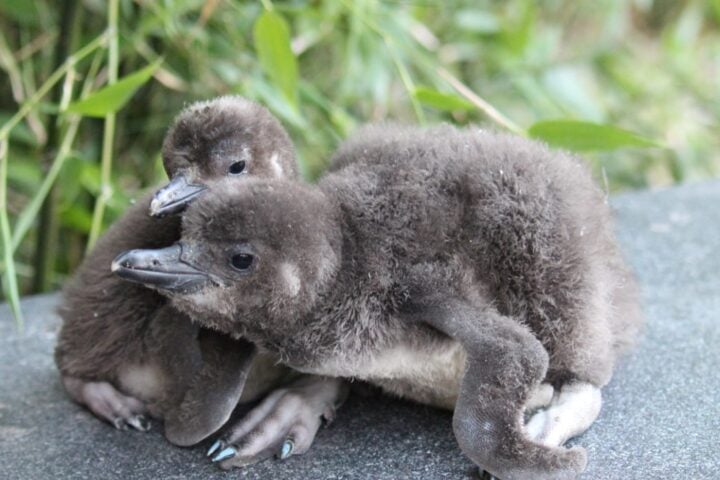
Blue Toenail Polish Helps UK’s Only Magellanic Penguin Colony Track Health of New Chicks at Blackpool Zoo
Tiny penguin chicks at Blackpool Zoo are getting blue nail polish on their toes – but it’s not just for fashion. This creative solution helps zoo staff tell the fluffy siblings apart,
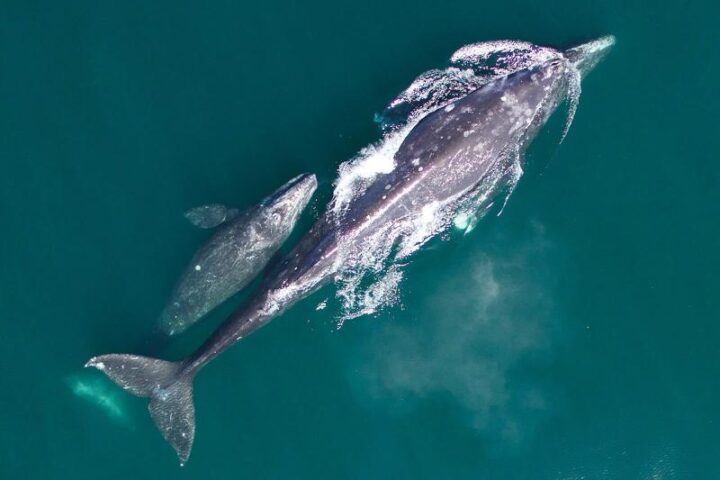
Gray Whale Population Plummets 50%: Arctic Feeding Changes Push Numbers to 1970s Low of 13,000
The Eastern North Pacific gray whale population has plummeted to its lowest level since the 1970s, with alarming declines in both adult numbers and newborn calves. A recent count by NOAA Fisheries
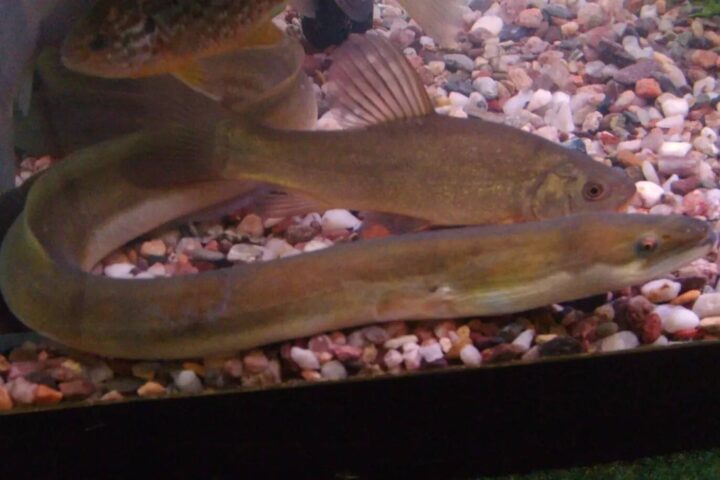
DNA Study Reveals 6 Endangered Fish Species in Singapore-Malaysia Fish Maw Trade Worth Up to $1,184/kg
A new study has uncovered a disturbing trend in Singapore and Malaysia’s fish maw markets. Researchers found DNA from six endangered fish species in dried fish maw products sold in local shops.

4.16 Billion Years: Scientists Confirm Quebec Rocks as Earth’s Oldest in New Study
Scientists have conclusively proven that rocks in Canada’s northern Quebec are the oldest on Earth, dating back 4.16 billion years. The discovery, published in the journal Science on June 26, 2025, settles
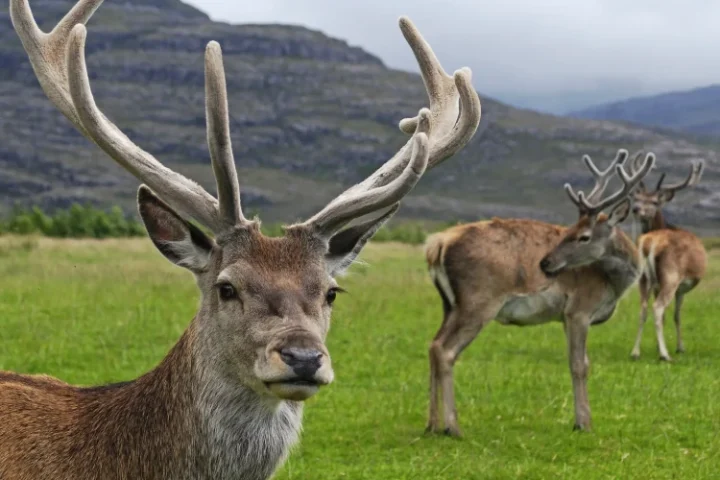
22 GPS-Tracked Deer Reveal Migration Secrets in Scotland’s Pioneering Wildlife Study
Scientists have launched an innovative research project in Scotland’s west Highlands, fitting red deer with GPS collars to track their movements. This pioneering study aims to help land managers make better decisions

TfL Wildflower Verges Hit 390,000m² as 50% Surge Creates 52 Football Pitches of Urban Wildlife Habitat
Transport for London has delivered something that sounds almost too good to be true. The transport authority has added 130,000 square meters of wildflower verges across the capital in just one year.

